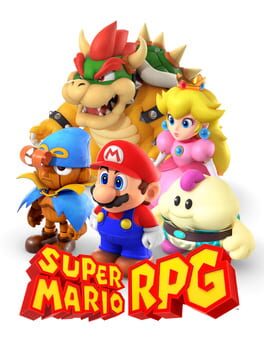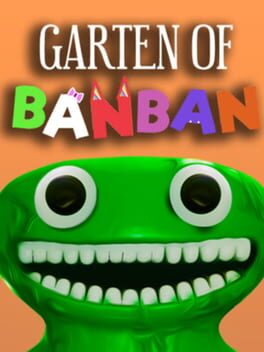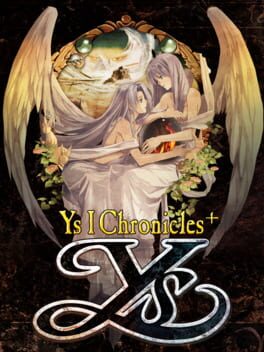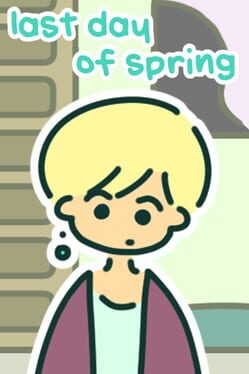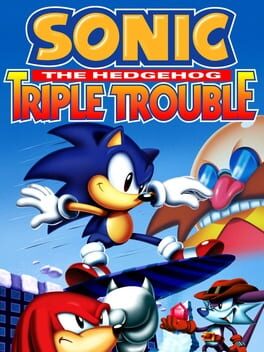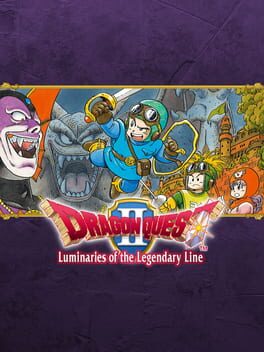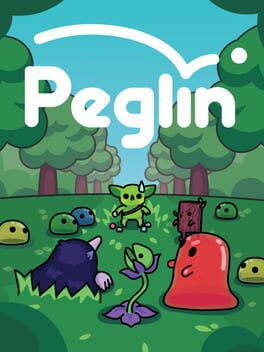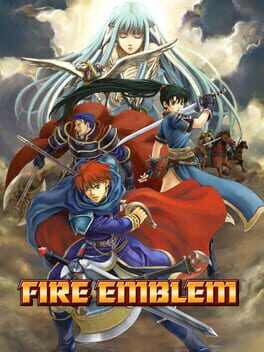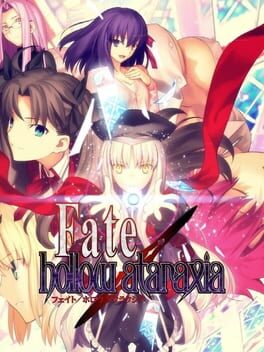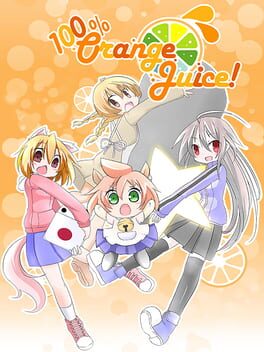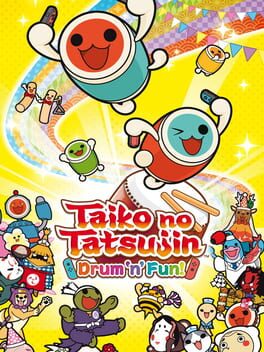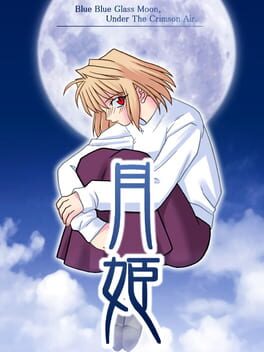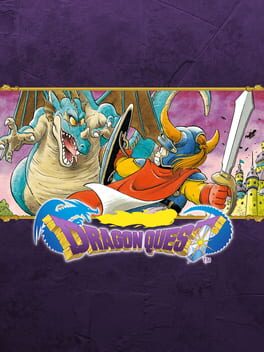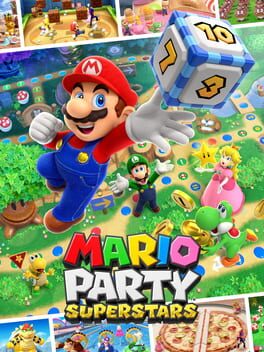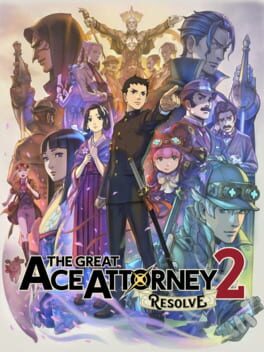2023
2023
2013
2019
I was surprised that I found Erika to be much more relatable protagonist than Haru but I also feel exactly like this whenever I try to do something for friends. It shouldn't feel cringe to do nice things for people or try to cheer them up!
...I also think that Haru getting sad because she had to put her deadname and AGAB on forms at work was a super great depiction of one of the most annoying microaggressions I've faced as a trans woman. Not a fan of the person who decided that those things are relevant all the time (they're not, especially the latter!).
...I also think that Haru getting sad because she had to put her deadname and AGAB on forms at work was a super great depiction of one of the most annoying microaggressions I've faced as a trans woman. Not a fan of the person who decided that those things are relevant all the time (they're not, especially the latter!).
Somehow, against all odds, an even more awe-inspiring experience than DQ1. It sucks to play a lot of the time and I would not play it without speed-up and save states, but it creates a legacy out of DQ1 and used it to make the world feel so much more grand.
More complex battles and dungeons are great, as is a world map that's best to navigate with the physical map of the game more than guides, and seeing how the world has evolved since the first game (especially re-entering the original continent you played on) really blows me away.
More complex battles and dungeons are great, as is a world map that's best to navigate with the physical map of the game more than guides, and seeing how the world has evolved since the first game (especially re-entering the original continent you played on) really blows me away.
2022
It cannot be understated how much of an improvement this game is over its predecessor. I feel like this game became the west’s introduction to Fire Emblem and its standard for a reason—everything that made FE6 feel rough around the edges post-Kaga has been refined here to make a quintessential game for the series. If you’ve already played it, I really have to recommend playing FE6 and then replaying this to see just how much it improves.
The changes are all little, and a lot of them are very technical aspects of the mechanics (which you can see in a great breakdown here: https://www.reddit.com/r/fireemblem/comments/cck83m/sequel_talk_mechanical_changes_from_fe6_to_fe7/), but when they all come together they make the game that much better. There are maps with varied objectives; no more needing to seize every map. Classes get reworked or buffed to make them more usable in the long-term (stinks that assassins can’t steal once they’re promoted from thieves tough). Gaiden chapters are no longer gimmicky maps that you need to do to get the game’s true ending, feeling more like worthwhile but non-necessary rewards for going out of your way in the main story. And it’s not just mechanics that got changed, the storytelling of the game was tremendously improved. You don’t get thrown 10 characters in the span of 2-3 chapters, so you actually get to spend some time with the ones you’re fed bit by bit. Side characters have interesting arcs beyond their introduction and maybe a recruitment conversation. Oswin, Matthew, Pent & Louise, Hawkeye, Legault, Jaffar & Nino, you’re not even guaranteed to get or keep all of them, but when you do they become a much more active part of the story than almost any character from FE6 did. Same goes for the enemies; I think the Black Fang and Nergal are some of the most dynamic antagonists in the series.
I don’t mean to just trash FE6 here, because I still do like it. I just think that if you know how much about it this game improved, it really makes FE7 seem like that much more of an achievement. It’s super worthy of praise on its own, though, and I think it’s worth it for anyone remotely interested in Fire Emblem to play.
Extra notes: I have to put this stuff somewhere it really just amazes me. They had to at least have planned that all the absent parents from FE6 were gonna be in this game because they feel so naturally integrated in it. As opposed to just cameos they’re real characters who were awkwardly absent from the last game. Really like how all-around, this game scales back the scope of things in Elibe, too—we got a lost about Bern and Eturia and Ilia in the last game, so focusing on Lycia for the most part with some characters from all around the continent really helps the worldbuilding more than jumping around everywhere in the previous game did. Even if we don’t go everywhere on Elibe, the people who come from all around it bring the places they live to life (this is true for Sacae especially, and it really makes the tragedy of the nation in the previous game feel so much more powerful).
The changes are all little, and a lot of them are very technical aspects of the mechanics (which you can see in a great breakdown here: https://www.reddit.com/r/fireemblem/comments/cck83m/sequel_talk_mechanical_changes_from_fe6_to_fe7/), but when they all come together they make the game that much better. There are maps with varied objectives; no more needing to seize every map. Classes get reworked or buffed to make them more usable in the long-term (stinks that assassins can’t steal once they’re promoted from thieves tough). Gaiden chapters are no longer gimmicky maps that you need to do to get the game’s true ending, feeling more like worthwhile but non-necessary rewards for going out of your way in the main story. And it’s not just mechanics that got changed, the storytelling of the game was tremendously improved. You don’t get thrown 10 characters in the span of 2-3 chapters, so you actually get to spend some time with the ones you’re fed bit by bit. Side characters have interesting arcs beyond their introduction and maybe a recruitment conversation. Oswin, Matthew, Pent & Louise, Hawkeye, Legault, Jaffar & Nino, you’re not even guaranteed to get or keep all of them, but when you do they become a much more active part of the story than almost any character from FE6 did. Same goes for the enemies; I think the Black Fang and Nergal are some of the most dynamic antagonists in the series.
I don’t mean to just trash FE6 here, because I still do like it. I just think that if you know how much about it this game improved, it really makes FE7 seem like that much more of an achievement. It’s super worthy of praise on its own, though, and I think it’s worth it for anyone remotely interested in Fire Emblem to play.
Extra notes: I have to put this stuff somewhere it really just amazes me. They had to at least have planned that all the absent parents from FE6 were gonna be in this game because they feel so naturally integrated in it. As opposed to just cameos they’re real characters who were awkwardly absent from the last game. Really like how all-around, this game scales back the scope of things in Elibe, too—we got a lost about Bern and Eturia and Ilia in the last game, so focusing on Lycia for the most part with some characters from all around the continent really helps the worldbuilding more than jumping around everywhere in the previous game did. Even if we don’t go everywhere on Elibe, the people who come from all around it bring the places they live to life (this is true for Sacae especially, and it really makes the tragedy of the nation in the previous game feel so much more powerful).
2014
This review contains spoilers
I love Fate/Stay Night for being a very active story. In every route, there is always a fight around pushing the corner pushing the story forward, and they’re very cool to read, yes—but they’re also where the characters are at their best when it comes to expressing their emotions. When characters like Saber and Gilgamesh, Shirou and Archer, and Rin and Sakura clash, there is a lot of pent-up energy, emotion, and history that comes out in full force. It makes for a very powerful story full of cathartic bursts of character drama.
Fate/Hollow Ataraxia brings all that to a halt. Everything and everyone is static.
Seeing the characters of FSN live out happy, daily SoL activities is really fun. I love this cast and I already loved the downtime they got in the original VN, so seeing everyone at peace and developing through silly little skits is fantastic. I wanted to see all these characters happy, and that’s what the VN gives you.
But there’s a sense of wrongness about it all.
Shirou feels it. Certain servants who should be very dead feel it. I feel it as a reader. Even as a story that doesn’t try to tie itself to any “canon” FSN route, you know that not everyone here is supposed to be happy. It’s what they deserve, but the trauma of the Fifth Holy Grail War is not something that’s going away. Nor are the problems that the VN’s new protagonist, Bazett, is facing.
Everyone is living without anything changing. For Shirou and friends, that makes life fun, if strange. For Bazett, there’s no worse fate. She’s someone who’s never been able to change herself, but as long as she doesn’t do anything too new or scary, things won’t get worse for her. But they won’t get better, either. That’s the one, simple point that Hollow Ataraxia drives home from beginning to end. Things need to end, because you won’t grow or change if they stay the same forever. You have to let things go in order to find new ways to learn about yourself.
Expressed through Bazett and her partner Avenger, this is a perfectly succinct message delivered in a very cathartic finale, but it’s just as much a meta-story for fans of the FSN cast. It’s fun to see what these characters would be like if they’re at their happiest. It makes you feel good to see them discuss the memories of the best moments of FSN. But they’re characters whose stories are complete. It’s okay to keep appreciating them and your memories of them, but bit by bit you have to let them just exist as they are. There won’t be an infinite amount of new things to do with them, and that’s okay. That’s life. It’s the same way your relationships with friends don’t always stay the same, or why you start doing new things when life as it is gets stale. It’s something I’ve internalized a lot in the past few years as once-familiar things changed with the pandemic and going away to college, and I think it’s wonderfully represented here. It’s fun to have memories, and it’s fun to keep doing new things, and those things should exist together in harmony.
Fate/Hollow Ataraxia brings all that to a halt. Everything and everyone is static.
Seeing the characters of FSN live out happy, daily SoL activities is really fun. I love this cast and I already loved the downtime they got in the original VN, so seeing everyone at peace and developing through silly little skits is fantastic. I wanted to see all these characters happy, and that’s what the VN gives you.
But there’s a sense of wrongness about it all.
Shirou feels it. Certain servants who should be very dead feel it. I feel it as a reader. Even as a story that doesn’t try to tie itself to any “canon” FSN route, you know that not everyone here is supposed to be happy. It’s what they deserve, but the trauma of the Fifth Holy Grail War is not something that’s going away. Nor are the problems that the VN’s new protagonist, Bazett, is facing.
Everyone is living without anything changing. For Shirou and friends, that makes life fun, if strange. For Bazett, there’s no worse fate. She’s someone who’s never been able to change herself, but as long as she doesn’t do anything too new or scary, things won’t get worse for her. But they won’t get better, either. That’s the one, simple point that Hollow Ataraxia drives home from beginning to end. Things need to end, because you won’t grow or change if they stay the same forever. You have to let things go in order to find new ways to learn about yourself.
Expressed through Bazett and her partner Avenger, this is a perfectly succinct message delivered in a very cathartic finale, but it’s just as much a meta-story for fans of the FSN cast. It’s fun to see what these characters would be like if they’re at their happiest. It makes you feel good to see them discuss the memories of the best moments of FSN. But they’re characters whose stories are complete. It’s okay to keep appreciating them and your memories of them, but bit by bit you have to let them just exist as they are. There won’t be an infinite amount of new things to do with them, and that’s okay. That’s life. It’s the same way your relationships with friends don’t always stay the same, or why you start doing new things when life as it is gets stale. It’s something I’ve internalized a lot in the past few years as once-familiar things changed with the pandemic and going away to college, and I think it’s wonderfully represented here. It’s fun to have memories, and it’s fun to keep doing new things, and those things should exist together in harmony.
2009
2000
This review contains spoilers
As someone who spent a lot of time going back and forth on just how much she liked Tsukihime, I don’t think its reputation is entirely unearned. It has a lot of stilted writing and translations, repeated content even across scenes that you’re not allowed to skip, and a less-than-perfect handling of sexual violence in its H-scenes that most people have probably heard about. It’s not perfect, but I think it deserved to be engaged with in a genuine way and not let its messiness define it (well, in a way it does and that’s cool, but it’s better if people don’t do it in an ironic way).
I really like what’s at the heart of Tsukihime—a bunch of chance encounters and events that shape the lives of the characters in very drastic ways yet allow them to become people who understand themselves and others more. I love that Arcueid is a chance encounter that’s absent from the Far Side routes because Shiki didn’t see her that one day. I love how Satsuki’s absence from class, brushed aside once the action in the Near Side routes gets going, takes on a whole new meaning once you see what she’s up to at the start of Akiha’s route. I love the way Eclipse ties every route and everything that happened together in a way that really makes the story feel complete. I think it’s easy to find a lot of the stuff that’s great about this VN in the other works it inspired, but they’re just as good on their own merit in the place they came from as well. Very much worth reading for anyone who feels that they’re able to.
I really like what’s at the heart of Tsukihime—a bunch of chance encounters and events that shape the lives of the characters in very drastic ways yet allow them to become people who understand themselves and others more. I love that Arcueid is a chance encounter that’s absent from the Far Side routes because Shiki didn’t see her that one day. I love how Satsuki’s absence from class, brushed aside once the action in the Near Side routes gets going, takes on a whole new meaning once you see what she’s up to at the start of Akiha’s route. I love the way Eclipse ties every route and everything that happened together in a way that really makes the story feel complete. I think it’s easy to find a lot of the stuff that’s great about this VN in the other works it inspired, but they’re just as good on their own merit in the place they came from as well. Very much worth reading for anyone who feels that they’re able to.
2004
